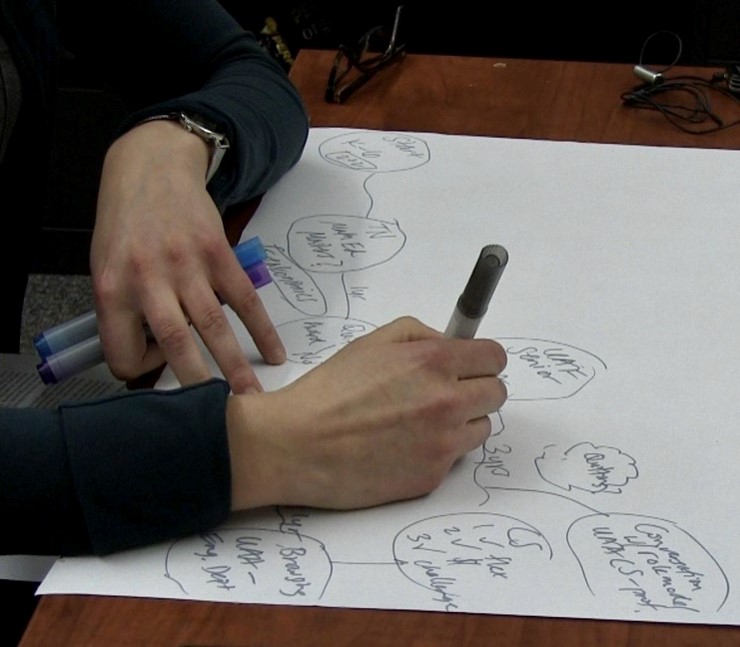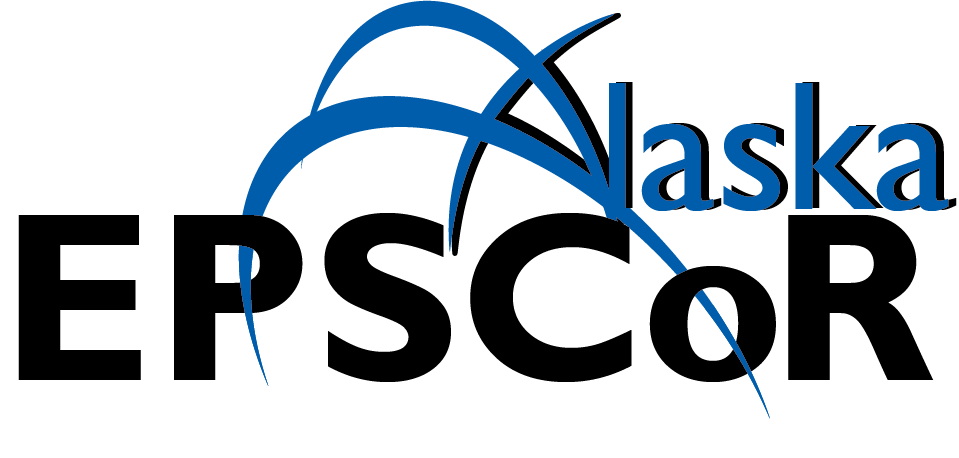DEW Team
The Diversity, Education and Workforce Development (DEW) team has two overarching aims: 1) to increase five “key competencies” that are identified in educational literature as essential for building capacity to address sustainability challenges, and 2) to broaden participation in science, technology, engineering and math (STEM) fields. To accomplish this, DEW is undertaking a suite of interventions to build key competencies among K-12 students and teachers, to increase science, technology, engineering and math (STEM) interest and identification among a broad swath of K-12 and UA students, and to build capacity among UA faculty to better teach and support UA’s diverse student body.
The DEW team works to achieve three goals:

DEW postdoc Megan McGinty pilots a DEW afterschool curriculum with K-12 students in Fairbanks, May 2021.
Goal 1: Build key competencies among stakeholders to address ecological change. To enhance key competencies, DEW is implementing two major programs for K-12 teachers and learners: after-school programs and teacher workshops. In partnership with the Fairbanks and Juneau school districts, the Kachemak Bay National Estuarine Research Reserve (KBNERR), and the Campbell Creek Science Center, the team is developing lessons for use in afterschool activities. An initial 5-lesson Fire Science curriculum aimed at 3rd-5th grades was developed in 2020.
These activities, which will reach at least 350 students over four years, will enable students to work through current and future landscape scenarios related to F&I research. DEW will conduct three 3-day key competencies workshops to help K-12 teachers develop and integrate new case studies and other scenario-based activities into existing mandated curricula. F&I will also enhance at least six UA course offerings related to F&I themes, including adding F&I-specific modules to courses in remote sensing, wildlife management, and environmental chemistry, among others.
Goal 2: Build a diverse pool of STEM learners and workers in Alaska. DEW focuses on female, first-generation and Alaska Native K-12 and UA students, helping members of these underrepresented groups to develop and maintain an interest in, and identification with, science.

A student works on a drawing of their personal STEM experiences as part of the DEW first-generation student research project.
One central DEW diversity effort is a qualitative, multi-year research project that will isolate factors leading to first-generation students’ identification, or lack of identification, with STEM. It is increasingly understood that to pursue STEM, students must incorporate the identity of a scientist into their personal identity; however, individuals hold multiple social identities, such as gender, ethnicity or a particular vocational bent, and these sometimes conflict, causing identity interference. The conflict between gender and science identities has been studied in detail, but no research has been done on students’ reconciling first-generation and science identities, which is the focus of this project.
In addition, DEW is partnering with UAF Student Support Services to support UA peer tutoring for at least 180 students and to hold difference-education interventions, in which senior students from underrepresented groups lead a panel discussion for new underrepresented students about the challenges and opportunities they have created in college. DEW is also creating 8 “Faces of STEM” stories highlighting UA alumni from diverse backgrounds who are succeeding in STEM careers, and sharing them across the UA system to increase a sense of belonging among underrepresented students. In addition, DEW is overseeing a plan to ensure diversity in EPSCoR student and faculty hires.
A Fire & Ice Girls on Water participant inspects mussels in Kachemak Bay, August 11, 2019.
To engage girls in STEM, DEW is implementing “Girls on Water” and “Girls in the Forest,” in which diverse sets of female high school students take part in extended scientific expeditions to Kachemak Bay and the Alaskan boreal forest. The initial “Girls on Water” expedition took place in July 2019, and both “Girls on Water” and “Girls in the Forest” expeditions took place in summer 2021.
Goal 3: Increase capacity for F&I science and teaching among UA faculty and students. DEW provides mentoring for all F&I faculty hires aimed at introducing them to F&I research, aligning their work with project goals, and helping them to build a broad research network, and also sponsored a mentoring workshop (video) held in conjunction with the 2019 EPSCoR All-Hands Meeting. DEW is also supporting a new UA-wide mentoring group for postdoctoral researchers. DEW also supports UA faculty and student development by awarding travel grants.
DEW is also offering a suite of workshops focused at teaching diverse students, including events focused on diversity, and on teaching and learning. Event have included a pair of Indigenous Knowledges workshops co-led by Beth Leonard of UAA and Ocean Mercier of Victoria University (Wellington, NZ), a workshop on stereotype threat (video) by Amanda Sesko of the University of Washington Tacoma, and a science communication workshop put on by the Alan Alda Center for Communicating Science.

